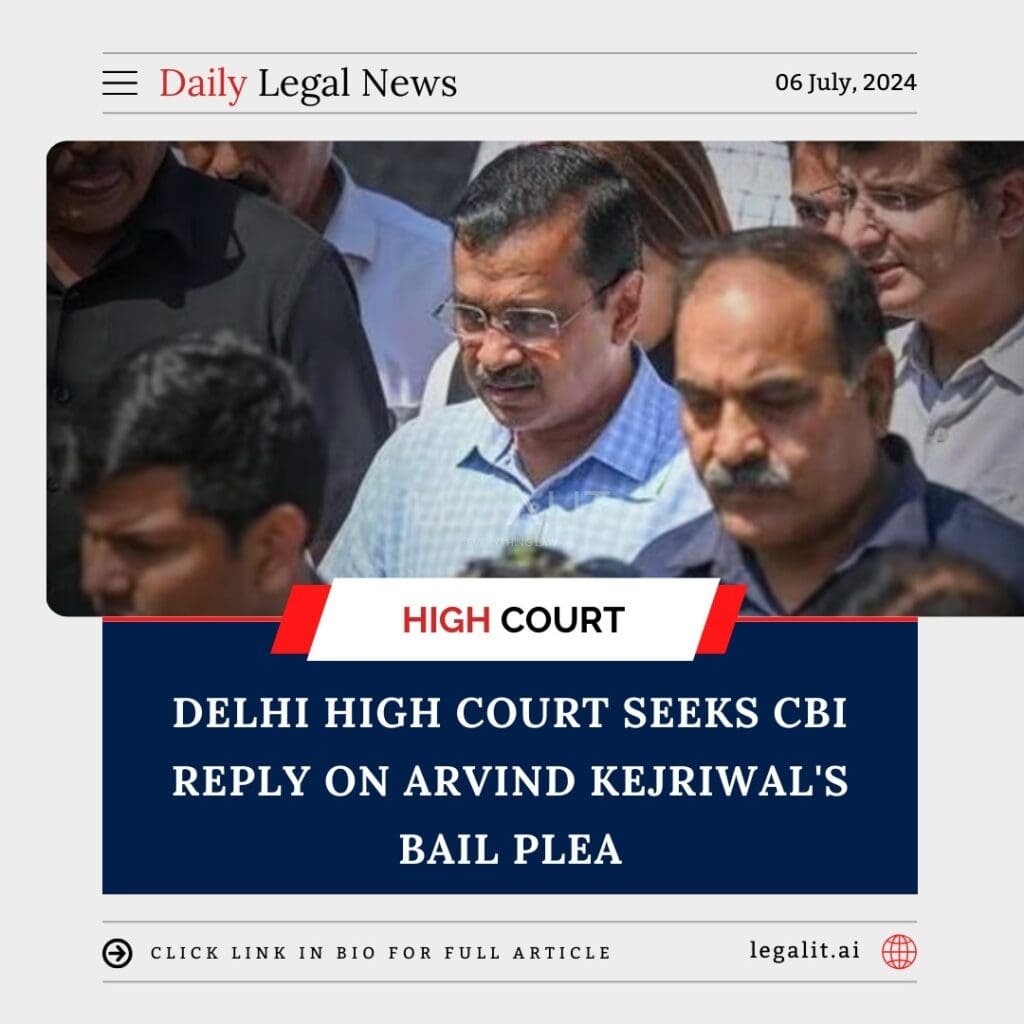
The Delhi High Court has sought a response from the Central Bureau of Investigation (CBI) regarding the bail plea of Delhi Chief Minister Arvind Kejriwal, who was arrested in connection with the Delhi liquor policy case. The court has asked the CBI to explain why Kejriwal bypassed the trial court in seeking bail directly from the High Court.
Key Details:
- Grounds of Arrest:
- Kejriwal’s plea contends that his arrest was not supported by any new evidence and that all allegations were already part of previous chargesheets filed by the CBI. He argued that the CBI’s arrest memo and grounds for arrest lacked justification and new material, making his detention unwarranted.
- CBI’s Allegations:
- The CBI has been investigating the Delhi liquor policy case for over a year, during which Kejriwal was initially summoned as a witness. The CBI’s recent arrest of Kejriwal comes months after the Enforcement Directorate (ED) also detained him in connection with the same case.
- Court Proceedings:
- The High Court, presided over by Justice Neena Bansal Krishna, has scheduled the next hearing for July 17. The court has directed the CBI to file its reply within seven days, addressing the concerns raised by Kejriwal in his bail plea.
- Legal Arguments:
- In his plea, Kejriwal cited assurances made by the Solicitor General before the Supreme Court, stating that no further arrests were anticipated as the investigation was nearing its conclusion. Kejriwal’s legal team argues that the arrest contradicts these statements and lacks substantial grounds.
This case highlights the ongoing legal challenges faced by Arvind Kejriwal and raises important questions about the procedures and justifications for high-profile arrests in ongoing investigations.